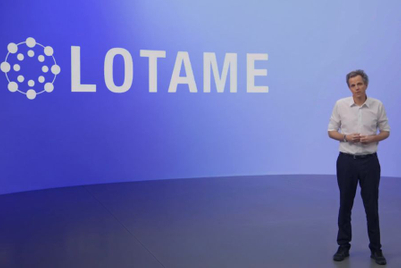
Publicis Groupe says it has learned the mistakes from the problematic acquisition of Sapient and will "not waste time" on integrating its new data marketing purchase, Epsilon.
The French advertising group’s chief executive, Arthur Sadoun, admitted that Sapient had taken too long to integrate within the group, while the process for integrating Epsilon would begin immediately after the deal closes, currently expected to be in the summer.
Publicis announced yesterday that it would acquire Epsilon for $4.4bn (3.4bn) in one of the marketing services industry’s biggest-ever deals.
In a call with investors today, Sadoun remarked that Publicis agencies had already started asking if they could bring Epsilon "into pitch meetings on Monday". While Epsilon would be treated as a "plug and play" business that agencies could use, this could not happen until the acquisition completes.
There were three companies that were in the running to buy Epsilon until the sale was finally agreed on Saturday, Sadoun revealed.
Epsilon will be expected to "create value for shareholders in 2020", meaning the business will be expected to grow from the moment it becomes a Publicis company.
The deal was contingent on Epsilon being able to integrate quickly. Sadoun compared this to Sapient, which Publicis bought in 2015 but has proven to be a significant cost drain. Publicis wrote down almost half of its the $3.7bn valuation in 2016 because it was dragging down the business due to restructuring.
"Sapient is a brilliant acquisition that is today delivering very strong results, but it has taken time and has been a challenge to integrate," Sadoun said. "We have learned a lot. The example of teams getting together is a good example; with Sapient it was not the case.
"We have to make sure, on the day the [Epsilon] deal is signed, this should work immediately. We’re focused on organic growth. We can’t waste time on managing this kind of integration."
The 47-year-old Sadoun, who took over the Publicis reins from Maurice Lévy in 2017, was defiant when challenged on whether the acquisition would help grow revenue when key advertising sectors such as retail and FMCG had faced structural decline in recent years.
"Clients are not spending less money," he said. "The CMOs have more money than in the past. That’s why Accenture is now in the creative world. There is a shift between IT and marketing in terms of technology and digital spend… When people are willing to spend in brand advertising, they are accelerating building their first-party data.
"By being present on the creative field, media field, business transformation, with a data backbone and platform that enables you connect all of them, you are balancing the risk.
"The best example of that is FMCG… they will have to accelerate in investesting in relationships with their own customers. This is where the shift will happen."


.jpg&h=334&w=500&q=100&v=20250320&c=1)



.png&h=334&w=500&q=100&v=20250320&c=1)
.png&h=334&w=500&q=100&v=20250320&c=1)


.png&h=334&w=500&q=100&v=20250320&c=1)




.jpg&h=268&w=401&q=100&v=20250320&c=1)
.jpg&h=268&w=401&q=100&v=20250320&c=1)
.png&h=268&w=401&q=100&v=20250320&c=1)

